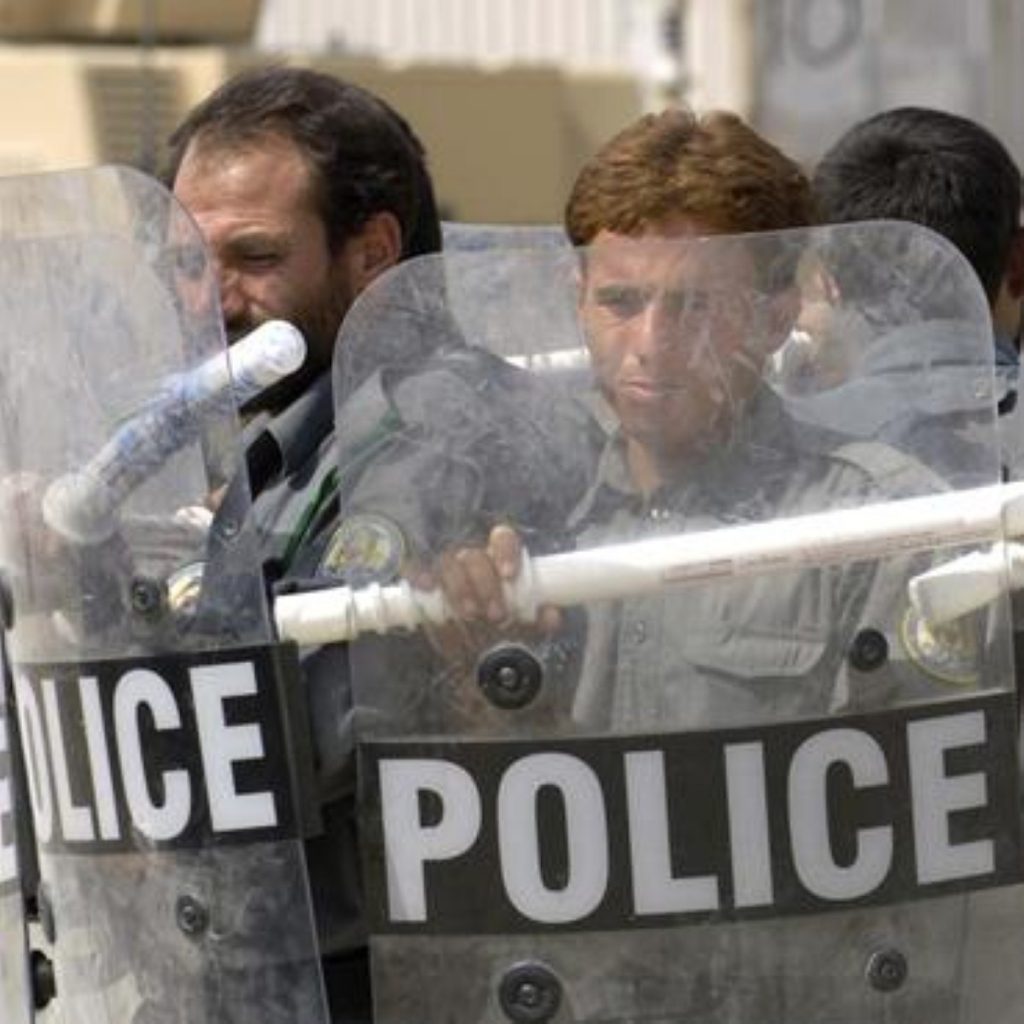Journalists fight Afghan media blackout
By Alex Stevenson
Afghan journalists are refusing to cooperate with a government demand to not report tomorrow’s elections during polling hours.
Kabul has requested media coverage of the elections is halted so any Taliban attempts to disrupt the process will not deter would-be voters from participating.
Most journalists are expected to ignore the request, which said the broadcasting of any “terrorist attack” was “strictly forbidden”.


The president of the Afghanistan Independent Journalists’ Association, Rahimullah Samander, told the AFP news agency: “It is a democratic day, a very important day for our independence. this type of ban does not sit well with democratic principles.”
It follows yesterday’s claims by the BBC that electoral fraud, corruption and bribery were rampant throughout Afghanistan.
Coalition forces are determined to help Afghanistan make the transition to democratic government but, as the country’s second ever presidential election looms, question-marks continue to be raised over the legitimacy of the process.
British forces in Helmand are sustaining heavy casualties as they attempt to secure the area between the province’s economic and political capitols for voters.
Earlier this week the Ministry of Defence revealed 94 casualties in June, a sharp leap on previous figures, as troops pay the price for defending the country in the lead up to the elections.
The Taliban has pledged to do its utmost to disrupt the polls, a threat underlined today by a gunfight in Kabul.
Six were killed as insurgents raiding a bank close to the city’s presidential palace fought police forces for hours, the Reuters news agency reported.
Polling stations open at 07:00 local time (03:30 BST) on Thursday.
A separate report from Oxfam warned that progress in Afghanistan would be flawed if the election of a new government was not accompanied by major reforms in governance and aid effectiveness.
It said the aid spent so far had been nowhere near as effective as it could have been and that nearly 7.3 million people were at risk of hunger because of severe food shortages.
Oxfam GB’s country director for Afghanistan Grace Ommer criticised the way British forces are used to help complete aid work.
“In many parts of Afghanistan [the] militarization of aid work is not promoting development or stability and is drawing civilians further into the conflict,” she said.
“More of the money should go through local institutions and communities, or to aid agencies, who often have greater impact and efficiency.”

